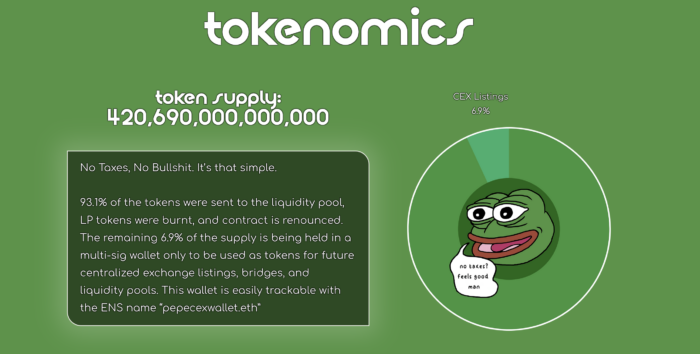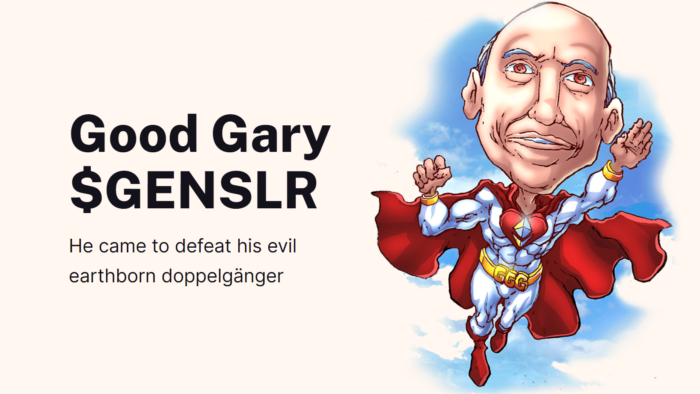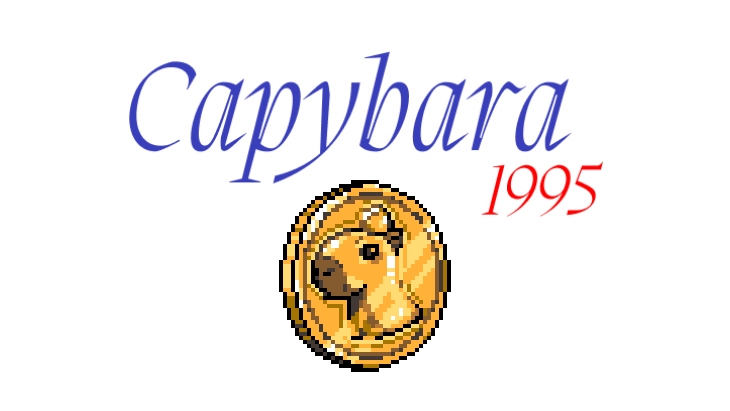The cyclical nature of the blockchain has been on full display as of late. While, in the past, market change may have been triggered by generative avatars, major innovations, or even catastrophic events, the recent resurgence of memecoins has inspired a major shift in the day-to-day operations for those in the NFT space.
In early 2023, open editions seemed to be the savior of a waning NFT market. But now, the trading volume of memecoins has continued to far surpass that of NFTs. Similarly, the amount of crypto enthusiasts who hold memecoins has continued to chart new all-time highs month after month.
This fevered trading might inspire nostalgia in those who rode the “shitcoin” wave of 2021, but things seem to be a bit different this memecoin season. $PEPE, the Pepe the Frog-inspired coin, has taken center stage as the king of the 2023 memecoin mania, but there are plenty of others also dominating the charts.
So let’s take a look at some of the top memecoins on the market.
What are the most popular memecoins?
Pepe

$PEPE is unequivocally the most popular memecoin of the 2023 season and is credited with leading the resurgence of memecoins altogether. Created by an anonymous team of developers, $PEPE reached a $1 billion market cap and entered the crypto market’s top 100 cryptocurrencies three weeks after it launched. Although traders and exchanges alike have quickly adopted $PEPE as a facet of the crypto ecosystem, some remain wary that the coin’s IP might lead to legal issues down the line.
Turbo
$TURBO is a coin created as both an experiment and a piece of performance art by Sotheby’s-selling OG crypto artist Rhett Mankind. Mankind created the coin with a $69 budget and no prior experience to speak of. He simply asked ChatGPT to do it for him. He chronicled the entire process via his Twitter, even asking his followers for help with decisions along the way. $TURBO has since grown to host a market cap of over $50 million.
Good Gensler

$GENSLR, also known as Good Gensler, is a memecoin based on a parody of SEC Chairman Gary Gensler. As (the real) Gensler is known to be somewhat of an opponent of crypto and NFTs, Good Gensler exists as his antithesis. The Good Gensler character, which acts as the visual representation of $GENSLR, is said to be the “founder of the Intergalactic Crypto Defense League (ICDL) and a champion of crypto” who came to earth to defeat his doppelganger.
Mong
$MONG, or, MongCoin, is a memecoin tied in with the existing Mongs NFT collection that launched in January 2022. The initial concept of the Mongs ecosystem can be traced back to a joke made by Democratic Congressman Brad Sherman about a fictitious “mongoose coin.” Having run with the joke, the Mongs community launched $MONG to reward its NFT holders and offer the greater NFT space a “meme coin the community always deserved.”
Wojak

$WOJAK is a memecoin based on a historical meme called Wojak, AKA “Feels Guy.” The meme dates back to 2010 and features a black-outlined cartoon of a bald man whose many expressions are interchangeable and used in various meme formats. Wojak has become especially popular in the crypto and NFT space, and $WOJAK is just another evolution of the meme that has been shared within various blockchain communities for years.
Jeff
$JEFF is a memecoin that is also based on the Wojak meme but with a twist. Instead of utilizing the original Wojak meme, Jeff is based on the McDonalds-branded version that is often circulated as a sort of self-deprecating inside joke between crypto and NFT traders when prices crash. Jeff (the Mcdonald’s Wojak character) is said to be “an average guy working at McDonald’s,” hoping to take a risk and make some money by launching his own token.
Capybara

$CAPY, or Capybara Coin, is a community-driven token created to be “the next top memecoin.” Led by the catchphrase “get in no time to explain,” $CAPY utilizes a Capybara as its mascot and often shares Capybara memes as part of its social media branding. In the future, the creators of $CAPY have said they plan to donate funds to charities and organizations (like zoos) that support Capybaras.
Rizz
$RIZZ is a memecoin that is said to be the “ultimate cultural ecosystem built on top of Ethereum.” A play on the term “rizz” (which is short for charisma), the token is described by its creators as a “cultural work of art” based on “fun and entertainment” that will evolve into a decentralized lending market, yield farm, chain analysis tools, and more.
Four

$FOUR, or, FourCoin, is a memecoin likely based on a multitude of memes in which people, animals, and characters hold up four fingers while posing for a picture. Although little information is known about the token or its roadmap, its popularity has been solidified thanks to an event in which a trader spent 64 ETH (around $120,000) in transaction fees to purchase 13.7 billion $FOUR.
Guac
$GUAC, or, Guacamole, is a memecoin said to be “for the people, for the memes, for the toast, and the chips.” The coin prominently features green and guacamole-themed branding and, in contrast to the other memecoins on this list, is based on the Solana blockchain. $GUAC has been attributed to the rise of Solana memecoins and is considered the most successful memecoin on Solana. Its official Twitter also regularly posts transparency reports to keep holders and community members updated on everything that is happening.


